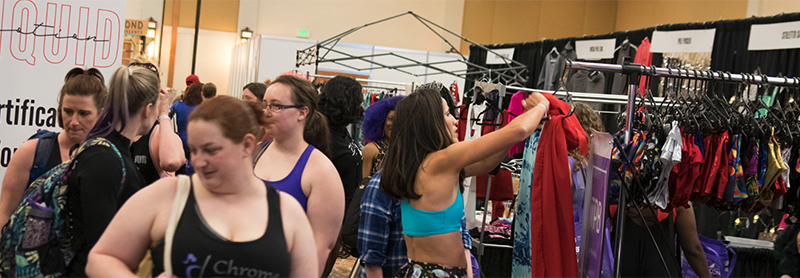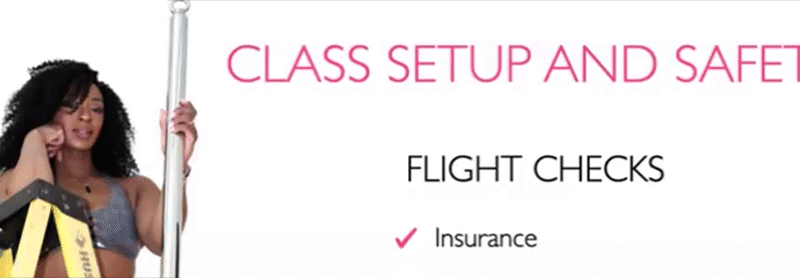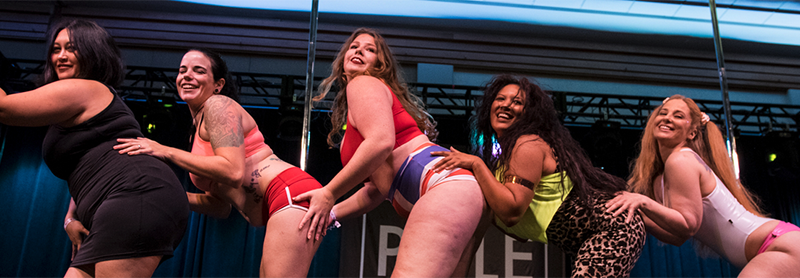A train-cation is a trip (usually away from home) where you focus for a specific…

How pole-based businesses can avoid copyright infringement
Online content is everywhere and because it’s easily accessible, it may feel like you can repurpose whatever content you find online for your own uses including for your business. However, just because it can be found publicly doesn’t mean you automatically have the rights to use it. All content is created by someone and they automatically have the legal license to use it. If you wish to use someone else’s content, you must get permission from the original creator. This is known as the copyright. Copyright can get complicated fast—the simplest way to understand it is, if you didn’t create the content (artwork, photography, music, article, etc.) yourself, then you do not have the right to use it without explicit permission or a license.
What is copyright?
Copyright is a legal protection with details that vary from country to country. Generally, it is a protection granted to tangible works including musical, artistic, dramatic and literary works. In most countries, copyright protections are granted from the moment in which the work is created. Copyright does not protect ideas, systems or methods. A copyrighted work may also be referred to as your intellectual property. Make sure to research how copyright functions in your country.
What is copyright infringement?
According to the United States Copyright Office: “As a general matter, copyright infringement occurs when a copyrighted work is reproduced, distributed, performed, publicly displayed, or made into a derivative work without the permission of the copyright owner.” Because most countries grant some type of copyright protection upon the creation of the work, it can be very easy to violate someone else’s copyright by accident.
What are other types of legal protections?
This article focuses on copyright specifically, there a few types of legal protections that cover other forms of creative works. It may be beneficial to consider these as well. Violating any of these protections could result in legal action against your business:
- Trademark: “A trademark is a word, phrase, symbol, and/or design that identifies and distinguishes the source of the goods of one party from those of others.” Examples include, brand names, logos, and slogans.
- Patent: A patent must be registered with your country’s government and approved. Patents grant property rights to new inventions of something that can be made or used.
What does “commercial use” mean?
There are a several, different licenses you can obtain to legally use copyrighted works. Licenses can be purchased for very specific situations or for general purposes depending on how you intend to use the copyrighted work. Businesses typically want licenses listed for “commercial use” application which allows you to use the content for a business purpose. A commercial use license may also include other guidelines, such as if you can alter the work or use it directly in a product you sell. In contrast, a license for “personal use” would only allow you to use the content for a personal reason that is not for a business purpose (like for making crafts or a home movie). Make sure you understand the full license details before purchasing.
Tips and resources for small business owners
Make sure you are either using your own original creations for every aspect of your business or you obtain permission or a commercial use license to use works created by someone else. Since most small businesses don’t have the financial ability to hire full-time marketing experts or graphic designers, it’s important for all staff members to know what is legally acceptable and what is not. Here are some common “Do’s and Don’ts:”
DON’Ts
- DON’T use Google Images. Doing a quick Google search to find an image to use may seem appealing but it’s the easiest way to steal someone’s work, which is illegal. Consider using Google for inspiration or to see what competitors are using.
- DON’T use pop culture references. This includes images, silhouettes, fan art, logos, slogans and more. Large companies employ legal teams who find people using their copyrighted material without a proper license and you could be liable.
- DON’T use photos from other dancers or studios without permission. With social media, it’s easier than ever to find beautiful pole dance and aerial photography that would work perfectly for your business. However, you cannot use photos posted on social media or found through other websites without obtaining permission or a license. If someone tags your product on social media and has a public account, this user generated content is generally ok to share with attribution.
- DON’T use popular music in promotional videos. Most of us have been impacted by social media policing copyrighted music. Use royalty free music or inexpensive licenses for music instead:
- Resource—Kevin MacLeod’s free music library
- Resource—Find songs for cheap at Audio Jungle
- DON’T use the content if you can’t find the original creator. In some cases, it may be hard to track down the original creator of a work you would like to use. A lot of people share the work of others without proper credit to the original creator. If you cannot find the creator who owns the license, do not use the content. You are still infringing on copyright whether you know who the license holder is or not.
DO’s
- DO Hire a photographer to take photos. While at first, it may seem intimidating to hire a photographer, this can be a great investment for your business! Find pole and aerial photographers searching on social media or in the IPIA member directory. Always confirm with the photographer how you will use the photos, so they provide an appropriate photo package and image release forms.
- DO Use free stock photo websites. For standard (non-pole) images, try free commercial-use photos available on stock photo websites. Make sure to read and follow any license rules.
- DO Ask for permission or buy a license. If you want to share photos from fellow pole dancers or aerialists on social media, ask them and credit them. If you want to use their photos for commercial purposes (including on your website, advertising, a blog that links to products, printed on a product, etc.) make sure you specify your intent and consider having them sign a model release form. Remember, you can only purchase a license from someone who has the legal authority to sell it in the first place.
- DO create your own graphics. Even if you lack graphic design skills, there are many free or low-cost websites providing tools and templates to create professional-looking advertisements and social media posts:
- DO get creative. Take your own photos with high quality cell phone cameras.
Remember, if you didn’t make the work, you do not own it. Making slight modifications to work that was created by someone else may not be enough to qualify as a new copyright. Be as clear as possible in all your business dealings to avoid legal issues.



